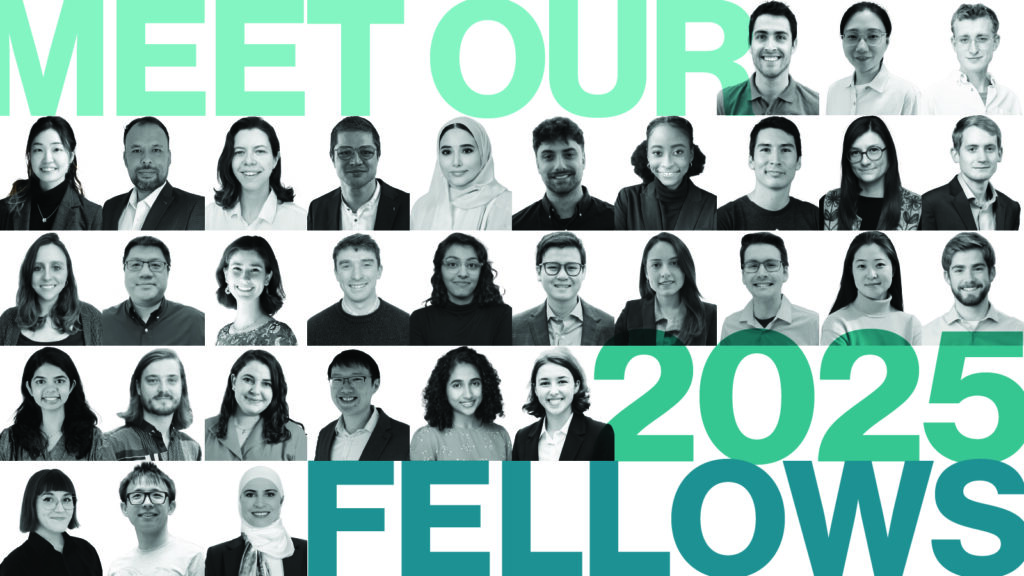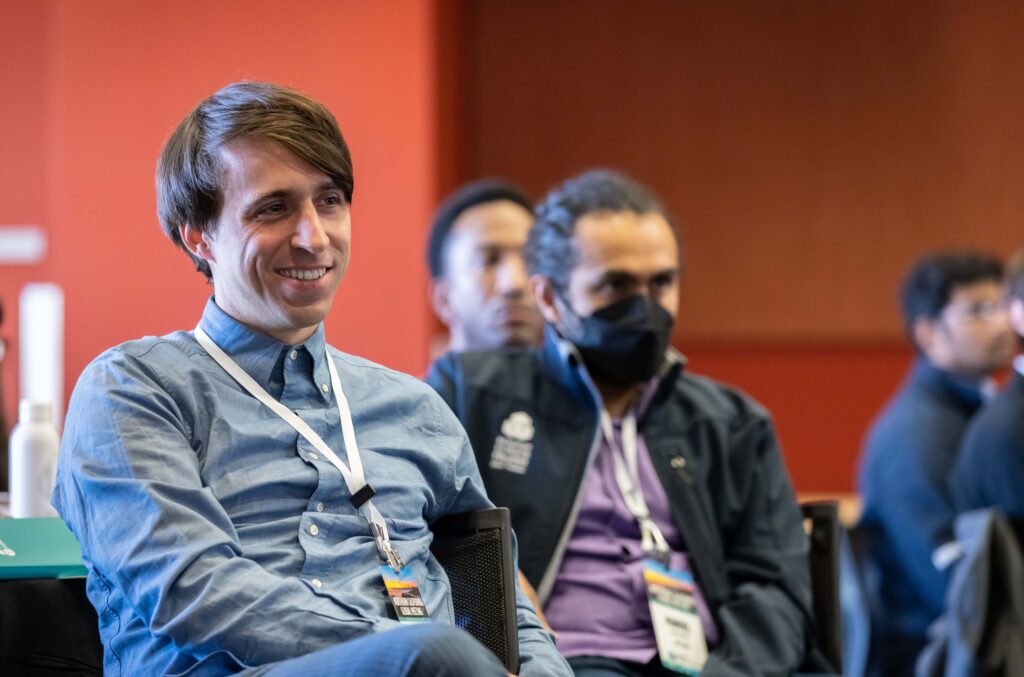Oxford, October 20, 2022 – Schmidt Science Fellows, an initiative of Schmidt Futures in partnership with the Rhodes Trust, is proud to announce the first recipients of the new Senior Fellows Catalyst Grants. The Catalyst Grant Scheme aims to support new interdisciplinary science ideas from our Senior Fellows (alumni) community and foster cross-Fellowship collaborations.
Schmidt Science Fellows launched the Senior Fellows Catalyst Grant Scheme with a pilot phase earlier this year. Senior Fellows were asked to submit proposals as collaborations of two or more Fellows and for up to $10,000 for ideas to support the development, exploration, proof-of-concept, or delivery of an interdisciplinary science idea. The pilot phase was used to generate collaborative ideas within our fellowship community and to help us understand the demand and value for such a scheme in the long-term.
The five grants awarded in the first round of the Catalyst Scheme aim to tackle global challenges, including climate destruction, through mitigating the impact of global heating on our cities and the oceans, and disease, through improved diagnostics and by understanding cancer growth.
The inaugural program of Schmidt Futures, a philanthropic initiative of Eric and Wendy Schmidt, Schmidt Science Fellows announced their fifth cohort in June 2022. Totalling 113 active and alumni Fellows representing 30 nationalities of origin, the Fellows exemplify Schmidt Futures’ mission by bringing the brightest minds together to solve society’s toughest challenges. Schmidt Science Fellows, delivered in partnership with the Rhodes Trust, envisions a world where interdisciplinary science can flourish and accelerate discoveries that tackle major challenges and have a positive impact on the planet. The grants provide opportunities for Fellows to pursue projects emerging from their Fellowship Research Placements and Fellowship interactions that would not otherwise be supported by other funders.
“Interdisciplinary science is the best path to making bigger discoveries faster that have a positive impact on the world Director of Strategy and Fellowship Affairs at Schmidt Science Fellows Matt Goode said. “It can be difficult to get interdisciplinary ideas funded, so with these new Catalyst projects, we are supporting ambitious, interdisciplinary ideas from our Senior Fellows, advancing exciting projects, testing concepts, and building a foundation for future development. We are thrilled with the strong demand and high quality of applications for this pilot round from across our community and look forward to watching how this accelerates their science.”
The five projects funded under the Senior Fellows Catalyst Grants are:
- 2020 Fellows, Dr Gabriella Heller, University College London and Dr Mar Cabeza-Cabrerizo, University of Cambridge
High-throughput magnetic resonance for drug screening and antibody-based imaging probe development – Dr. Gabi Heller and Dr. Mar Cabeza-Cabrerizo aim to create a new platform, which can be used to screen for new drugs and antibody-based diagnostic probes for MRI imaging.
- 2019 Fellows, Dr Asja Radja, Harvard University and Dr Rebecca Sherbo, Harvard University
Identifying factors that promote soft coral resilience in climate change-induced warming oceans – Dr. Asja Radja and Dr. Rebecca Sherbo aim to understand the resilience of soft corals growth and patterning in a warming ocean by combining physical and mathematical modeling with microbiology and examining the microbiota of soft corals.
- 2018 Fellow, Dr Mattia Serra, University of California, San Diego, 2019 Fellow, Dr James Briggs, MIT, and 2020 Fellow, Dr Yuanzhao Zhang, Santa Fe Institute.
How do Transcription Factors control cell fate? – Dr. Mattia Serra, Dr. James Briggs, and Dr. Yuanzhao Zhang plan to uncover new quantitative principles underlying cell reprogramming by combining dynamic systems tools, single cell sequencing, and graph and network theory. The work has the potential to improve therapeutics design and disease modeling, helping to understand malignant transformation in cancer.
- 2020 Fellow, Dr Ben Winer, Sloan Kettering Institute and Dr Mattia Serra, University of California, San Diego.
Understanding the molecular logic of Guanine nucleotide exchange factors and GTPase- activating proteins in immune cell migration and de-coding of chemical cues – Dr. Ben Winer and Dr. Mattia Serra plan to better understand the dynamics and activation of heterotrimeric G-proteins and their regulators by combining math, biology, and computational work. The work involves a sequential plan of creating cellular reporters, collecting in-vitro and in-vivo imaging data, developing predictive models, and then testing and refining those models.
- 2019 Fellows, Dr Jyotirmoy Mandal, Princeton University, and Dr Paul Ohno, Auburn University
Potential impacts of emerging building and urban envelopes on air quality – Dr. Jyoti Mandal and Dr. Paul Ohno’s goal is to understand, predict, and ultimately control the air quality and climate impacts of radiative cooler materials through the use of atmospheric chemistry modeling to determine air quality impacts of cutting-edge material designs and inform new designs of engineered materials.
About Schmidt Science Fellows
Schmidt Science Fellows is an initiative of Schmidt Futures, delivered in partnership with the Rhodes Trust. The Schmidt Science Fellows Program helps scientists solve bigger problems faster by identifying, developing, and amplifying the next generation of science leaders, building a community of scientists and supporters of interdisciplinary science, and leveraging this network to drive sector-wide change.
Each year, the Schmidt Science Fellows work in partnership with around 100 of the world’s leading science and engineering institutions to identify the best, brightest, and highest potential candidates to join the Fellowship. Nominated candidates then apply to the Program before a rigorous selection process that includes a paper-based academic review with panels of experts in their home disciplines, and final interviews with panels, including senior representatives from across many scientific disciplines and different business sectors.
About Schmidt Futures
Schmidt Futures bets early on exceptional people making the world better. Founded by Eric and Wendy Schmidt, Schmidt Futures is a philanthropic initiative that brings talented people together in networks to prove out their ideas and solve hard problems in science and society. To learn more about our method and the diverse types of capital and tools that we deploy, visit https://www.schmidtfutures.com.



